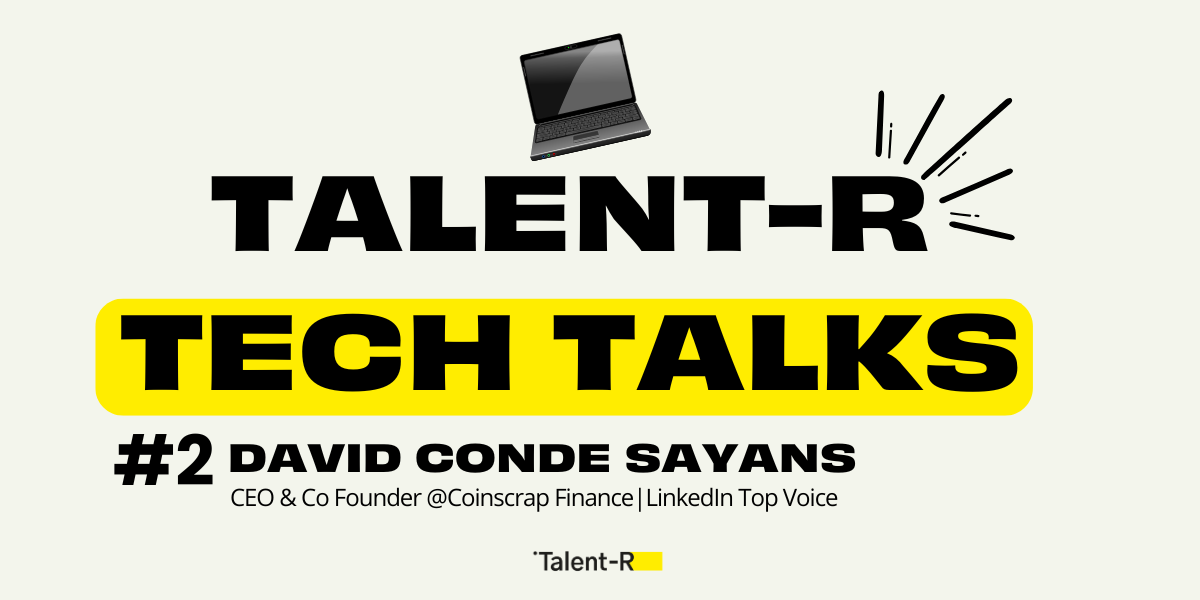
David Conde on How AI is Unlocking New Possibilities in the Financial Sector

David Conde, CEO and Co-Founder of Coinscrap Finance, is harnessing the power of AI to revolutionize the financial industry. In this interview, he shares how his company is transforming tran sactional data into actionable insights and shaping the future of personalized banking.
Thank you for joining us, David. To start, could you tell us a bit about Coinscrap Finance and your journey as its Co-Founder and CEO?
“Coinscrap Finance is a company that helps financial institutions unlock the full value of transactional data through data processing and analysis. By processing and analysis, I mean categorization layers, data enrichment, and insight generation, which we perform with COCO, our AI-powered categorization engine.
Although I’m a biologist, after completing a master’s degree in finance, I began working in private banking, advising clients with over a million euros in assets. At a certain point, I had the opportunity to leave the bank and start my own business. Together with my partners, we created our first stock investment startup, which we sold to a bank, and then, together with them, I founded Coinscrap Finance“.
As a LinkedIn Top Voice, how do you use your platform to inspire and inform others about financial technology and AI?
“I use it to inspire and inform others about the FIs I’m interested in. I share insights, trends, and real world applications that demonstrate the transformative power of AI in the financial industry. I aim to break down complex topics into digestible and relatable content that resonates with a wide audience, from industry experts to those just starting to explore the space”.
“With AI, financial institutions can analyze transactional data in real time, identify patterns and customer behaviors”
What do you see as the biggest opportunities AI presents to financial institutions today?
“Probably one of the biggest opportunities AI offers is transforming vast amount of data into actionable insights. Financial institutions can analyze transactional data in real time, identify patterns, and deliver personalized services, enhancing customer experience while optimizing process life fraud detention and credit risk management.
Another major opportunity is using AI to democratize acces to financial services. Tools like virtual advisors can help customers make better financial decisions, regardless of their prior knowledge”.
On the flip side, what are the main challenges or risks financial companies face when adopting AI technlogies?
“In my experience when a bank is adopting a new technology, there is always an important concern about data privacy, security, integration with legacy systems, regulatory and compliance issues.
Regarding AI, it can unintentionally inherit biases from the training data, leading to unfair outcomes, especially in areas like credit scoring or loan approvals. This highlights the critical importance of creating well-curated context-an area where we are actively helping banks today”.

In you recent Forbes talk, you mentioned AI as an accelerator for the financial industry, Could you elaborate on how AI is currently transforming the sector?
“AI is fundamentally changing how financial institutions operate and engage with customers: is enabling a new era of personalization. Financial institutions are using AI-driven tools such as our platform to offer tailored products, personalized advice, and real time financial insights based on individual customer behavior. This shift towards hyper-personalization not only improves customer satisfaction but also drives loyalty and retention”.
What role does ethical AI play in the financial industry, and how can companies ensure they use these technologies responsibly?
“In Europe a very regulatory stance is being taken towards AI, compared to others markets like the U.S or China, which allow for more innovation. Therefore, we will have to adapt to what the European Union dictates”.
Looking ahead, how do you envision AI shaping future of finance in the next 5-10 years?
“We’ll see AI-driven hyper-personalization, where financial services are tailored to individual needs in real time, enhancing customer experiences. Operational efficiency will be significantly boosted as AI automates complex processes like fraud detection, credit scoring, and compliance checks, freeing up resources for strategic initiatives“.
Finally, as an industry leader, what trends or innovations in AI excite you the most right now?
“I’m particularly excited about the growing use of AI for predictive analytics, which is transforming user experience, risk management and investment strategies. The ability of AI to process and analyze vast amounts of unstructured data is unlocking new opportunities for innovation in areas like financial inclusion, personalized services, and enhanced security”.



